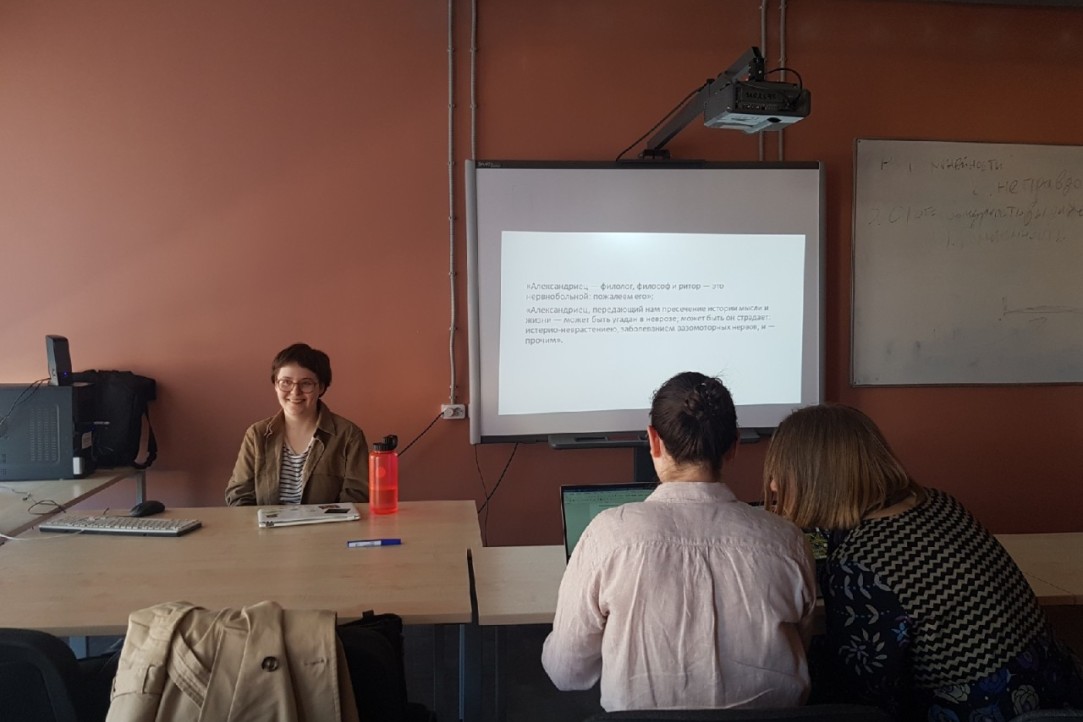The Fifth Research Seminar «Magic, Astrology, and Science in Russian Modernism»
On May 17, the fifth session of the research seminar «Magic, Astrology, and Science in Russian Modernism» took place. Maria Fesenko presented a paper «“The Alexandrian Period and Us”: Hellenism in the Historical Imagination of Russian Modernists».

Accustomed to drawing parallels between their own time and different historical eras, Russian authors of the early 20th century (Vyacheslav Ivanov, Andrei Bely) understood the Hellenistic period as the beginning of modernity. Their understanding of Hellenism was informed by the work of Johann Gustav Droysen who was the first to use this word in its modern meaning and to describe this period in terms of modernity, as the age of cosmopolitanism, rationalism, and secularism. Friedrich Nietzsche’s «The Birth of Tragedy from the Spirit of Music» which denounced Alexandrian culture as the source of optimistic striving for knowledge was another point of departure for early 20th-century criticism of Hellenism. The interest in Hellenism could also be enhanced by the turn in contemporary German Altertumswissenschaft during which the scholars’ attention shifted towards the study of the religious life of the Greeks, their cultural contacts with the East, and such phenomena as astrology and esotericism.
